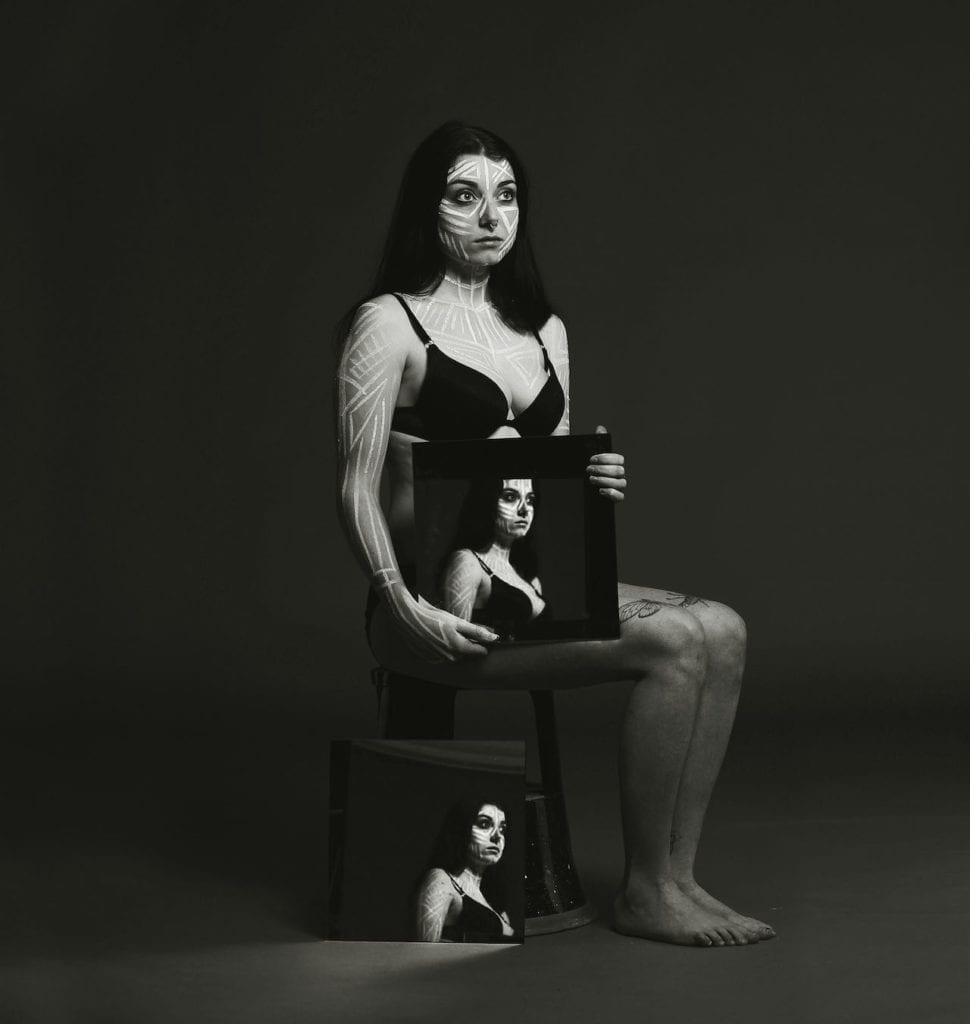When embarking on his most recent project, Why Is Your English So Good?, 21-year-old Daniel Adams asked fellow Malaysian friends who were studying or working in the UK to recount their experiences of racism. Each crafted a one- or two-sentence anecdote and the images that Adams made in response attempt to visualise what it’s like to be on the receiving end of casual prejudice. Using constructed sets and make-up to bring the feelings at the core of each story to life, the photographs are visceral and emotive, harnessing the power of the image to express the indescribable.
It was this quality that first drew Adams to photography and ultimately led him to move from Kuala Lumpur to Falmouth in order to study it. “I had finally found something that allowed me to express myself without the need to string a line of words together,” he says. Inspired by the surreal aesthetic of artists such as Evelyn Bencicova and Steven Klein, Adams’ work borrows from the codes of fashion photography to construct his own vibrant and uncanny imaginary worlds.

From the series Makhluk Asing © Daniel Adams
It was this quality that first drew Adams to photography and ultimately led him to move from Kuala Lumpur to Falmouth in order to study it. “I had finally found something that allowed me to express myself without the need to string a line of words together,” he says. Inspired by the surreal aesthetic of artists such as Evelyn Bencicova and Steven Klein, Adams’ work borrows from the codes of fashion photography to construct his own vibrant and uncanny imaginary worlds.

Addressing themes of a socio-political nature, Adams has found a new voice using painstakingly crafted visual elements to talk about the issues he feels are important. The colourful compositions of his series Unfinished reflect on identity as a fluid process of becoming, while Makhluk Asing – which means ‘alien’ in Malaysian – is an ambitious collection of staged studio shots that explore his culture and heritage.
Adams’ eye-catching aesthetic has already picked up traction online. Why Is Your English So Good? went viral, sparking a conversation about racism in the UK. As we enter into a charged era of global politics, Adams aims to build on these concerns. “I want to continue giving people a voice for their experiences and educating people on racism and the effects that it has on those who have experienced it personally,” he says.
danieladams.format.com This article was first published in the September issue of BJP, available via www.thebjpshop.com

From the series Why Is Your English So Good? © Daniel Adams 
From the series Why Is Your English So Good? © Daniel Adams
Adams’ eye-catching aesthetic has already picked up traction online. Why Is Your English So Good? went viral, sparking a conversation about racism in the UK. As we enter into a charged era of global politics, Adams aims to build on these concerns. “I want to continue giving people a voice for their experiences and educating people on racism and the effects that it has on those who have experienced it personally,” he says.
danieladams.format.com This article was first published in the September issue of BJP, available via www.thebjpshop.com


